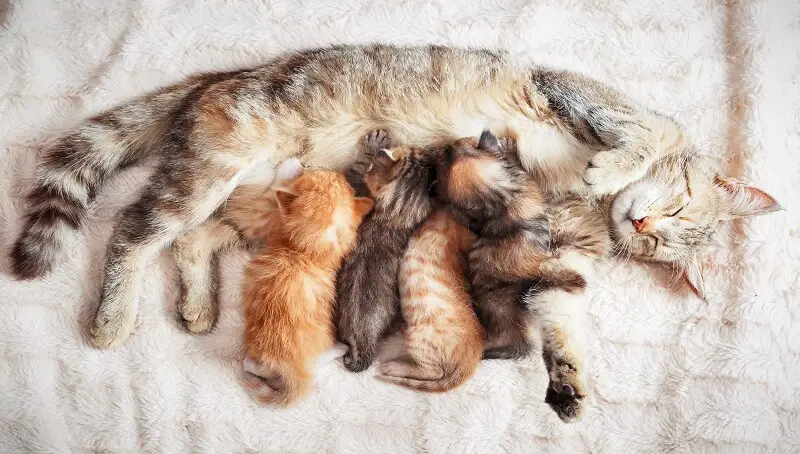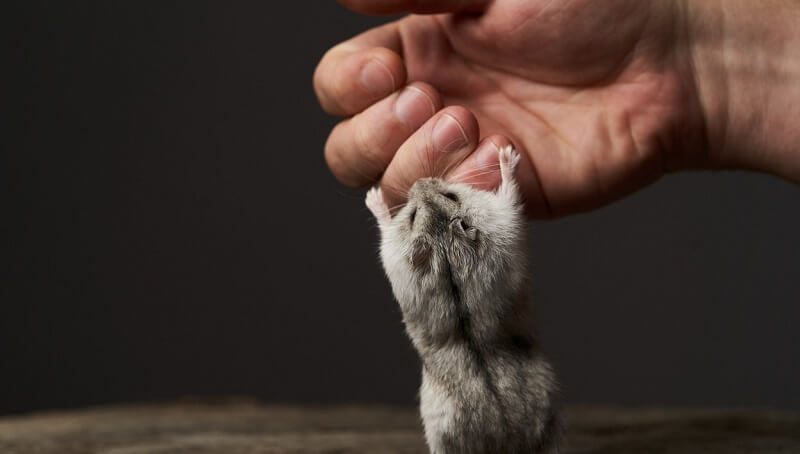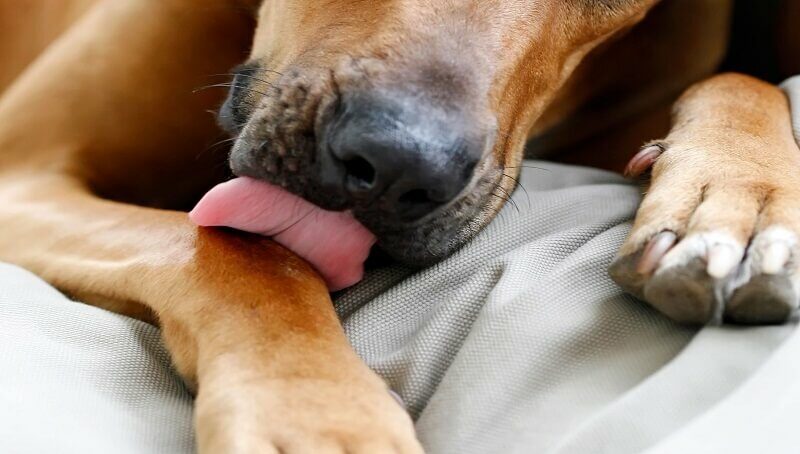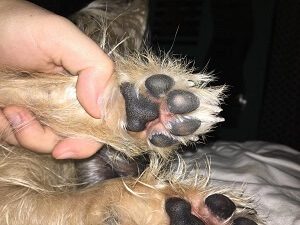
How Long Should a Kitten Stay with Its Mom?
January 10, 2023
How To Stop Your Hamster from Biting?
January 11, 2023
You may have noticed your dog licking his paws from time to time. Dogs lick their paws occasionally. It’s normal, but excessive licking of their paws can be a sign of a problem. If you frequently notice that your dog is licking his paws, it’s time to take a closer look.
Why do dogs lick their paws?
You might also like my articles about:
- Why a dog won’t stop licking his private parts
- Why do dogs lick their lips
- Why are dogs constantly swallowing saliva and licking their lips
- Atopic dermatitis in dogs
Dogs usually lick their paws as part of self-care. If your dog is taking care of him meticulously, you may notice him licking his paws after meals, while preparing for a nap, or after coming home from outside.
Even dogs who do not take care of themselves will occasionally clean their paws. If you notice your dog licking his paws from time to time, then you probably have nothing to worry about.
It is not normal if your dog seems to lick his paws frequently or aggressively. This is usually a sign of a health problem or behavior problem.
Health problems and paw licking
If you think that paw licking in your dog is abnormal, the first step is to determine if there is a health problem with his paws. Dogs often lick their paws excessively if they experience itching, irritation, or pain.
An injury or the presence of a foreign object in the paw may explain the sudden appearance of paw licking. Your pet may have stepped on something that caused discomfort, such as a sharp object or hot pavement. Or, it could have been stung or bitten by an insect or other animal.
There may even be an object or substance stuck to the paws and the dog needs help to remove it. Foreign objects such as splinters or pieces of wheat can get stuck in the dog’s paws and cause irritation.
Another possibility is that your pet has abnormal growth on one of its paws, such as a cyst or tumor. Or, your dog may have arthritis or damage to soft tissues or paw bones. The latter may not be something you can see with the naked eye. If your dog focuses on one paw more than the others, then it is more likely to be a wound, a foreign object, or growth. However, these problems can easily affect several paws at a time.
Allergies often cause itching or irritation of the paw pads, causing a dog to lick its paws for relief. Many dogs have allergies that cause itchy paws. It is known that food allergies cause itchy paws.
It is not uncommon for some dogs to develop bacterial or fungal infections in their paws. These infections can occur for unknown reasons. Sometimes they are secondary to allergies. When a dog licks his paws frequently, they remain wet and are more prone to bacteria and fungi.
External parasitic infections such as fleas or scabies also tend to cause itching in the paws, leading to excessive licking.
Behavioral problems and paw licking
 If all health problems have been ruled out, your dog is most likely licking his paws for behavioral reasons. It can be caused for as simple reasons as boredom. Or, it could be a sign of stress, fear, or anxiety.
If all health problems have been ruled out, your dog is most likely licking his paws for behavioral reasons. It can be caused for as simple reasons as boredom. Or, it could be a sign of stress, fear, or anxiety.
Paw licking could have started because of boredom and then became a relaxing or satisfying habit for your dog. In severe cases, your dog may have obsessive-compulsive tendencies that cause him to obsessively lick his paws.
A simple way to approach the licking behavior of his paws is to distract your dog. Take him for more walks, play with him more often and give him toys to keep his attention. Don’t scold him for licking, but don’t reward him with snacks either.
If the paw licking continues, consider approaching some behavior correction techniques to help your dog. Consult with a dog trainer or animal behavior specialist for help.
What to do if your dog licks his paws too much
If you feel that your pet is constantly licking its paws, start by taking a close look at them. Inspect the foot on the face and back, toenails, cushions, and spaces between the toes. Look for foreign objects, cuts, bruises, bleeding, swelling, redness, peels, crusts, leaks, broken nails, and anything else that seems abnormal. Administer first aid if necessary.
Keep in mind that excessive licking often causes saliva stains on the hair around the paws. This rust coloring is the easiest to see where the hair has a light color.
It is important to contact your veterinarian, whether his paws appear abnormal or not. Your veterinarian should spot eventual health problems before you start trying to address a behavior problem.
If your dog has a problem that may require advanced testing or treatment, your veterinarian may refer you to a specialist, such as a veterinary dermatologist or a veterinary surgeon.
If there is no physical reason for your dog to lick his paws excessively, then there is a chance that your pet has developed a behavioral problem.
Tips!
Behavioral modification to stop licking and chewing the front paws requires time, patience, and consistency.
Consider a local bitter-tasting product that is safe for pets to discourage licking. If this does not work, physical restraint may be required, such as a dog cone.
If further help is needed for behavior correction, consider working with a dog trainer, animal behavior specialist, or veterinarian in behavior.
